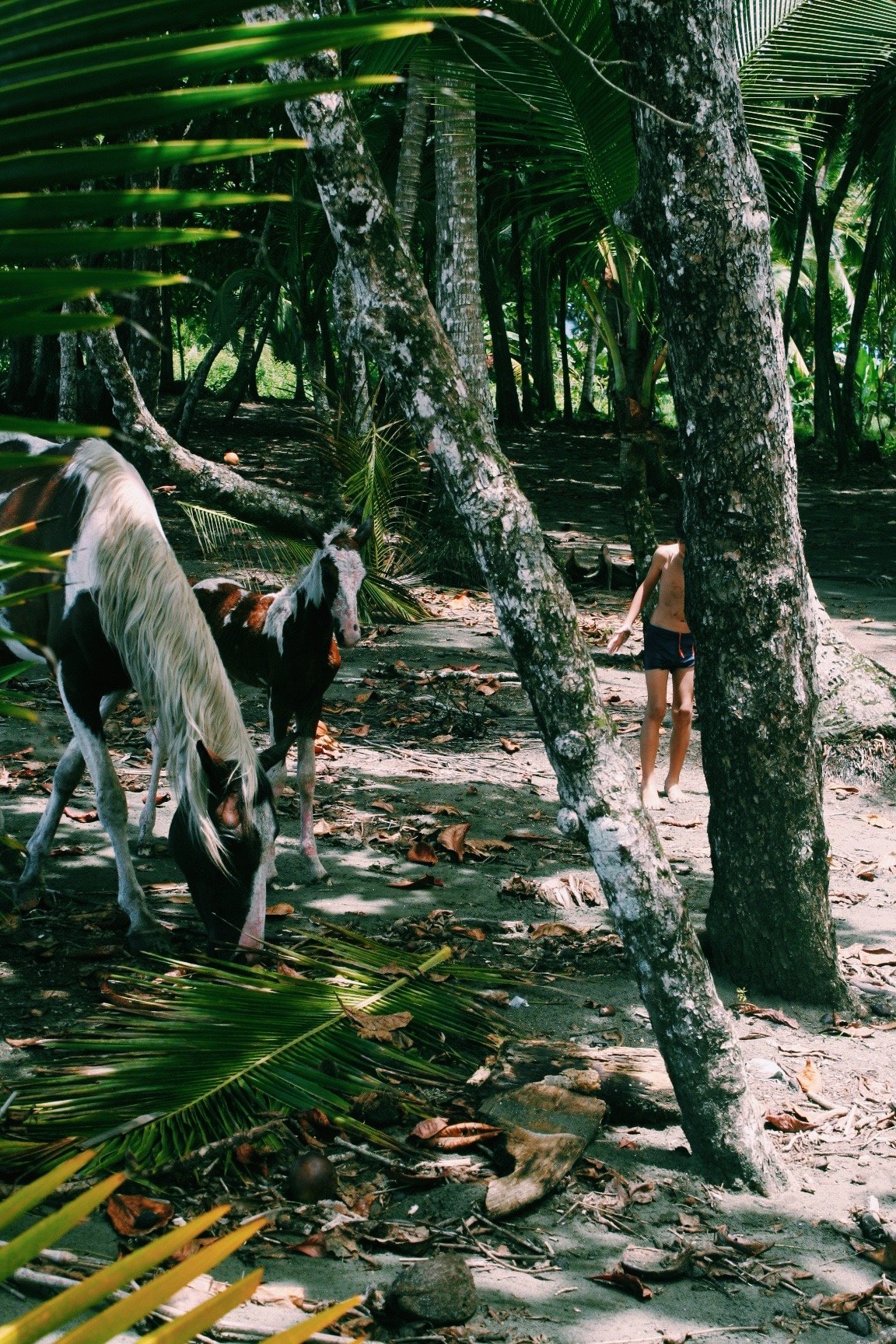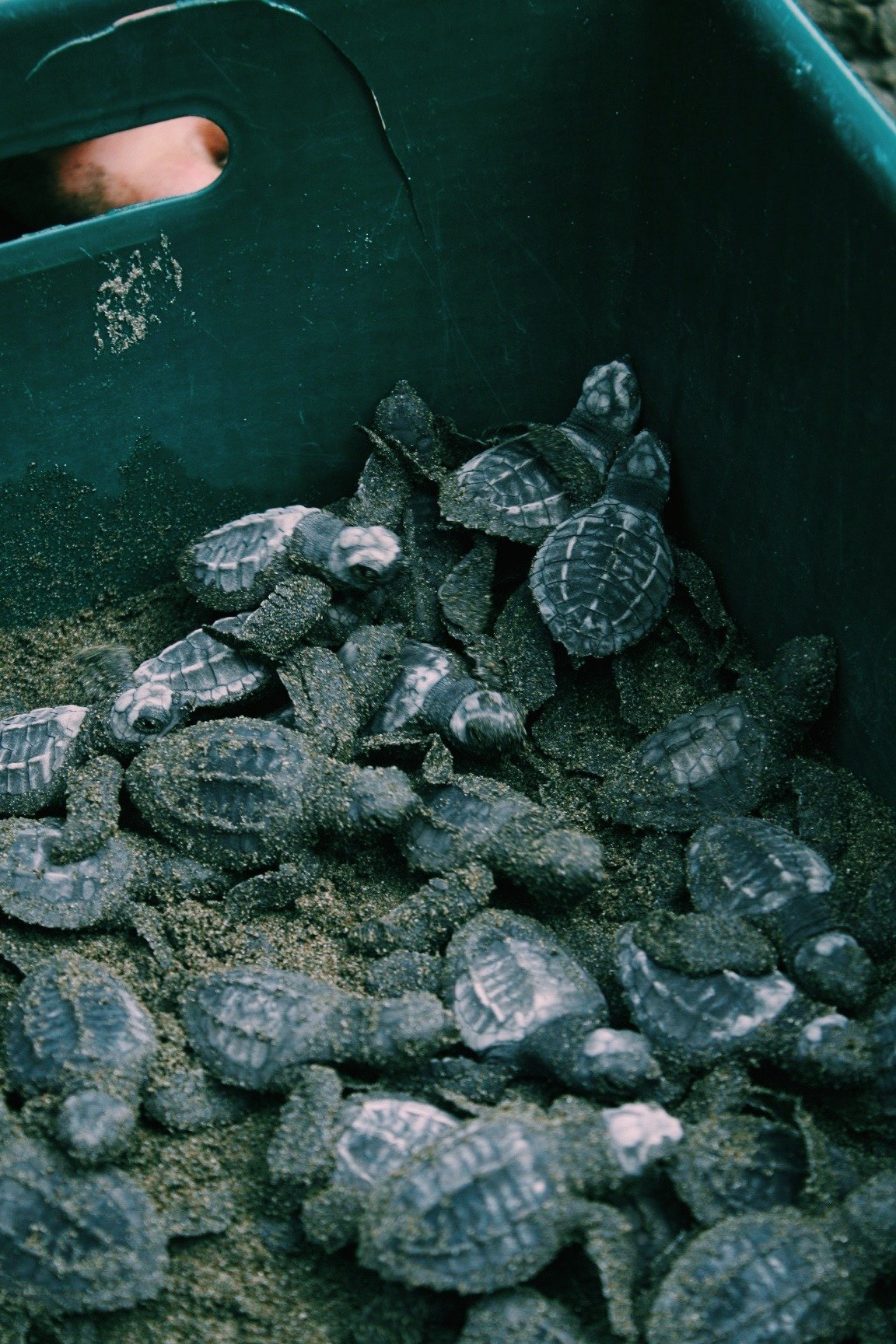Cracked Shell: Poaching, Addiction and the Sanctuary
The clouds darken as the vultures begin to circle. It is unwise to swim on this beach alone in the best of circumstances, but in a storm, it is forbidden. Are these birds a sign? Am I already dead? Have they come to pick the meat from my dead bones?
I know I am still living, but the cigarettes may say otherwise.
I begin to head back to camp. The rain in Costa Rica is like nothing I have ever experienced. It’s like being in the shower, all the time — refreshing, except that water and cameras don’t mix too well. I head to my room to read before patrol. It’s dry, besides the leaking ceiling, but shelter is shelter and I’m grateful for it and for where I am.
Our room had been overrun by a family of bats. Besides their constant poop and ability to carry diseases, they are harmless to humans. My roommates were repulsed by them — I guess they forgot we were living in the rainforest. It can get crowded in a room of five boys and 13 bats, but I love our flying stowaways. It was good to see them after a long day of work. Plus, they eat the large spiders that like to climb up in our beds. Like us, they are only looking for shelter.
Tonight’s patrol would be another downpour. Sea turtles prefer to make their nests at night. The exact time changes due to the tide, but usually, the volunteer group would head out around 2:30–3:00 a.m. We would walk up and down the beach for miles, looking for nests before the poachers could get to them. It sounds strange, but people eat both sea turtle eggs and the turtles themselves. The species we were working with, the olive ridley turtle, is apparently not very good to eat, so the poachers here mostly take the eggs. A person can get around 20 US dollars for a nest of 80 eggs. It might not seem like much, but everything counts down here. We would carry the eggs in trash bags back to the nursery where they could hatch safely, protected from poachers and predators.
I never thought I would be scaring away monkeys searching to snack on a baby turtle, but here we are. The importance of these eggs cannot be understated. They are so fragile, yet filled with resilience. They would already be extinct if they weren't so hardy.
We didn’t find any nests that night, but we did find a turtle. She had washed up on the beach. My eyes begin to water. Usually, the poachers just take the eggs from the nest, but this was something different. Her shell had been ripped open with some kind of saw. Her insides were lying about as if someone had rummaged through her body looking for eggs. She has not been dead for long, and you could still see the stains from her tears. I cried the rest of the walk back, my tears conjoining with the water from the pouring rain.
That night will be forever burned into my memory — A dark reminder as to why I am here. Even with her shell, she was so vulnerable, a precious beacon of light snuffed out forever for 20 dollars. Once again, I begin to question my role as a human. Am I even helping? Is this world even worth helping? Am I the problem? Can someone really be helping while still participating in capitalism at all? And, shall I just drink myself to death once more?
The next day, I had a shift guarding the nursery. Though the hours are long and the sun is hot, it is a good place to contemplate. I would be there for hours meditating, listening to music and thinking of the thousands of baby turtles in the sand underneath my feet. The seeds of life, the seeds of all creation. This planet is a majestic beast — an isolated blue oasis within the darkness of the universe, the bringer of love and life, as well as the bringer of death and destruction.
I saw thousands of baby turtles, yet only one in a thousand will make it to adulthood. The ocean is unforgiving in itself, but add humans to the equation, and surviving as a young turtle becomes even more treacherous.
A fellow volunteer was on shift with me that day. She was from Spain. We began talking about the incident from the night before.
“The poachers are sick people,” she said. “Most of them are addicts who just use the money to buy drugs or alcohol. It’s so unfair.”
“It is very unfair, but people are desperate,” I replied “I actually used to be a drug addict, so I know the feeling of desperation.”
She swiftly apologized. I let her know that I took no offense — wherever you go, there is always a stigma around depression and addiction. To me, depression and addiction coincide. One can have depression without addiction, but I personally don’t believe someone can have a serious addiction without some form of depression. They are one in the same, even if it’s not always treated that way. I no longer think of it as just addiction. I call it “depression-induced dependence.” I think the name fits, but maybe it’s just to make myself feel better about my own situation.
By the time I got to Costa Rica, I had been nine months sober. It may not sound like much, but for me, that’s a lifetime. I used to go heavy, at least heavier than most people. When I say I was a drug addict, this also refers to being an alcoholic. Alcohol is a drug. My journey with drugs was constant for the last five years. Over the past two years, I would drink at least ten beers along with copious amounts of weed every night — a very expensive habit. I would work every day of the week just to sustain my preferred forms of escapism. Weed, beer, and various forms of nicotine were my go-to’s, but I often dabbled in psychedelics, Adderall, cocaine, and sometimes molly.
I’m surprised my brain and body still function as well as they do. Though that is not to say I don’t still feel the damage. I definitely feel the damage.
This is a big part of what led me to volunteer with the turtles: to be involved with something I actually care about, to try and help, even if it’s not doing much. I’ve always been passionate about the well-being of animals. This has only increased due to the reality of climate change and its widespread acceptance as inevitable among most people.
While I cannot relate to the brutality and disregard for other species that the poachers have, if they are addicts, I know that we are similar in some ways. I have done some morally questionable things in pursuit of my addiction, including lying to and stealing from my friends and family, and endangering others while driving intoxicated. In the end, we are all people trying to cope with being a conscious intelligent being and all the struggles that can entail.
At times, I view addiction and climate change in a similar way. I am polluting my body knowing full well what that pollution is doing. Yet, there is a complete disregard for this pollution in pursuit of pleasure and short-term comfort. Humans are an addicted species. In the west, we have become addicted to a way of living and addicted to short-term comforts with a lack of empathy, or thought given to how this is going to impact the earth of the future, or how it is going to impact people of the future. Climate change is fueled by addiction.
Things can seem overwhelming the more I think about all of this, yet I hold true to who I am and what I believe in. It may not work for everyone, but it works for me. Sometimes, we are the only people who can empathize with ourselves and our situation. I don’t know what the future holds, but I do know that some things are, and will continue to be, unavoidable. It seems now that I am a vessel, here to observe and mitigate what I can, for the benefit of the world, myself and other living beings no matter what species. What I can do is small but still part of the bigger picture. I know there is more to this. I know there is more to humanity. I know there is more to this planet.
I turned 23 in Costa Rica. On the morning of my birthday, I was at the nursery. A single baby turtle came out of the sand. It was an early riser. It would take a couple of days for the rest of the siblings to come out of the nest. It was just me and this one fragile baby as I watched it make its way to the ocean. It’s gonna be rough, but they have a chance. It’s going to be rough, but I have a chance. Extinction is the rule, survival is the exception. Yet, somehow, we have made it this far.















